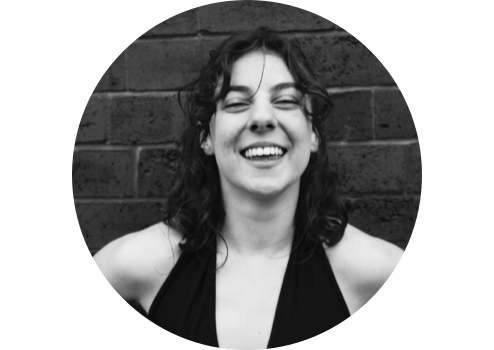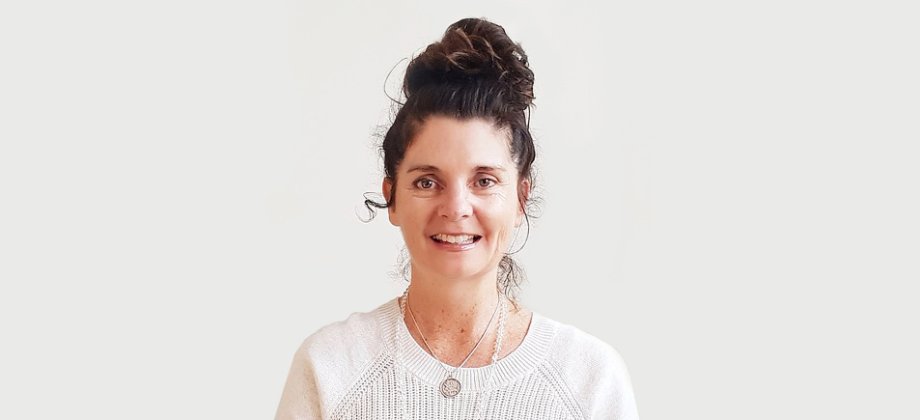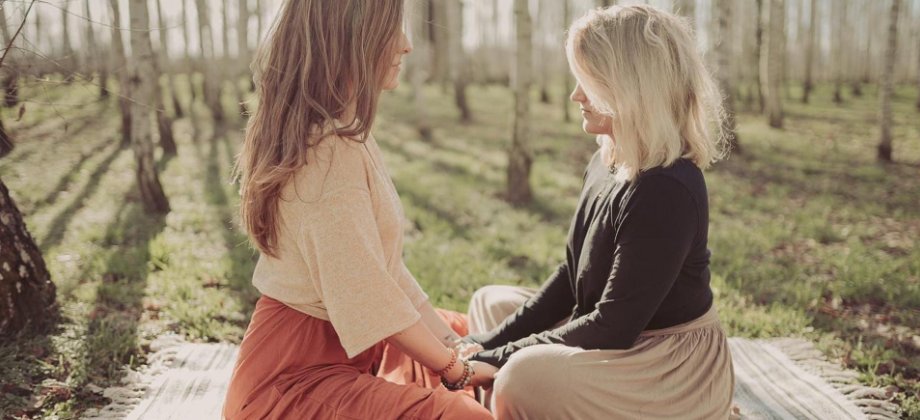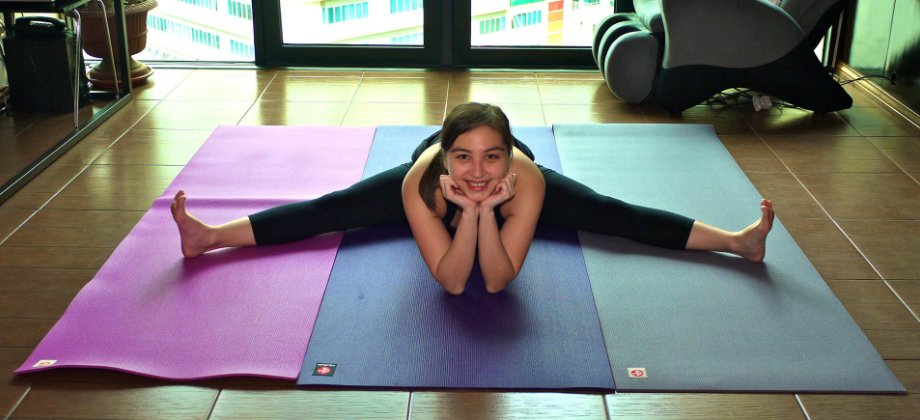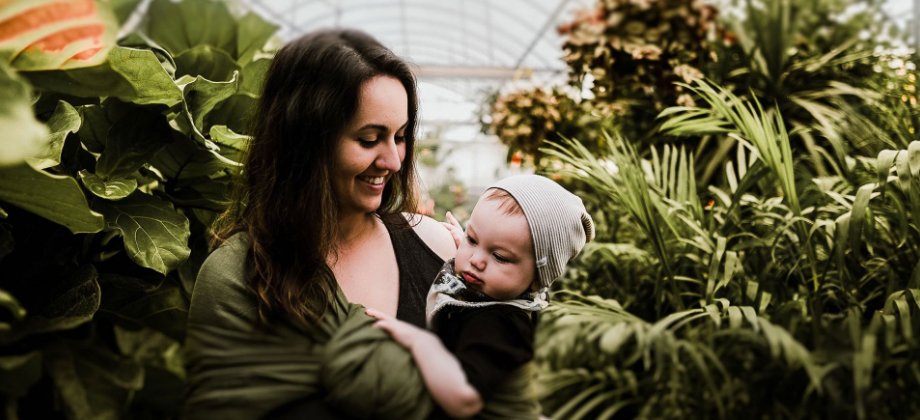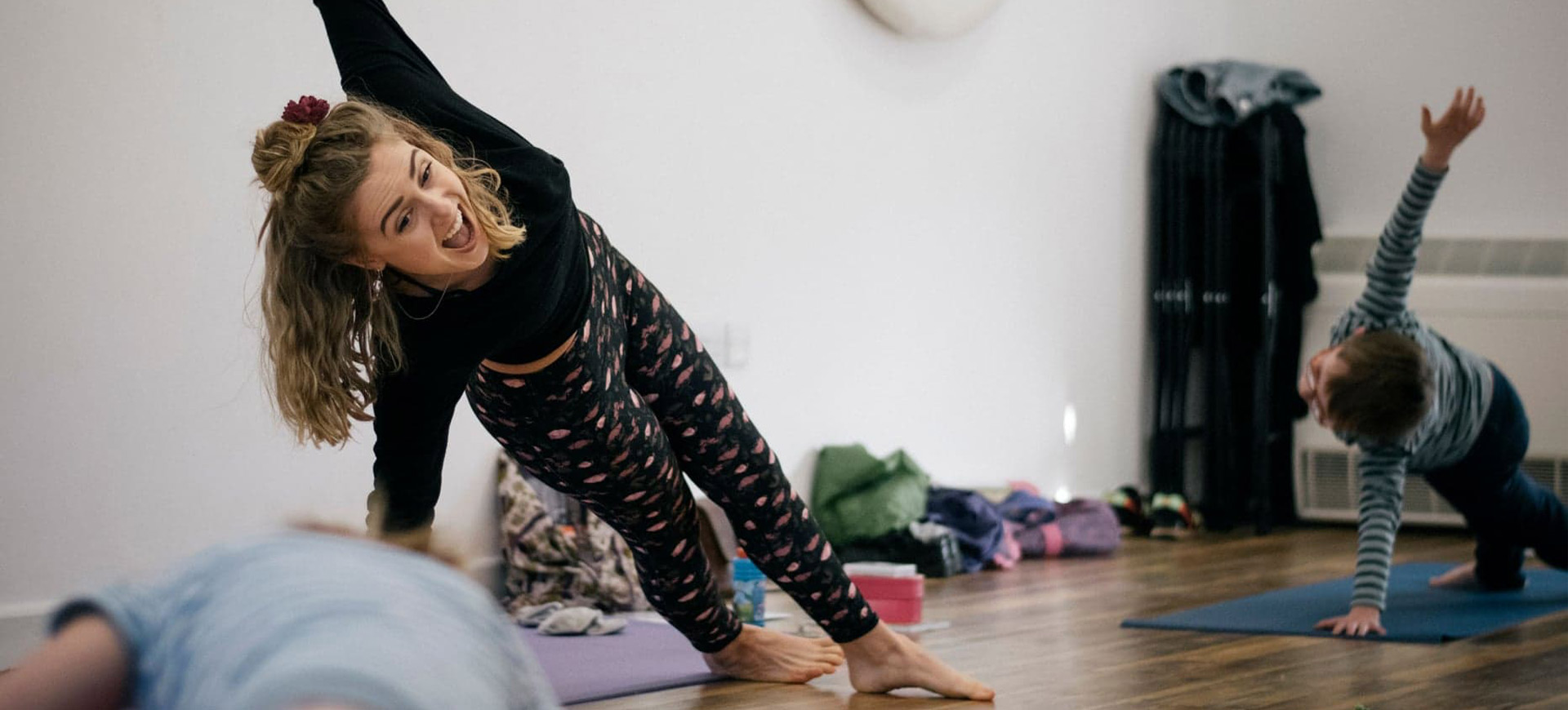
Yoga and Mindfulness for Children: An Interview with Rosie Dackombe
Rosie is a Yoga & Mindfulness teacher who specialises in Yoga for children. Below, she shares valuable insight into how the healing power of Yoga led her to teach, why she believes the practice is so important for children and the highs and lows she faces along the way.
My biggest driving force is to be the kind of adult I needed when I was little.
So Rosie, how did you come to train as a yoga teacher?
For me, Yoga has always been about healing. When I was 14 I was diagnosed with several chronic pain and fatigue conditions. These will always be a part of my life to some degree, but when I initially started Yoga as a way to strengthen my atrophied muscles, to my surprise I found it enhanced my mental state just as much, if not more than my physicality. It was like some kind of magic! I discovered an entirely new side to my body, my mind and my soul.
I truly credit my Yoga practice with my continued recovery and health. So of course, I then wanted to dive deeper.
How did this discovery of healing through Yoga in your personal life, lead to you teaching Children’s Yoga?
I actually trained in Children and Teenage Yoga teaching first! I studied early years education at University, and I’ve always loved working with kids. The idea that I could combine this with my Yoga practice, and share some of the magic I’d found with a new generation felt like the exact thing I needed to do.
I love that I trained this way around as well. So often with Yoga Teacher Training courses, they tag on “Children’s Yoga” as an extra 1 or 2-day training at the end, and then ta-da! You are now a children’s Yoga teacher! I hate that so much!
Children and Teenagers are so different and complex in their needs both physically and mentally. They have so much growing and changing happening, it’s a really intense time in life! To think of them as just “mini-adults” that are somehow easier to teach is to do them such a disservice.
Can you tell us a bit more about why Yoga is so beneficial for children?
So, we know that Yoga stimulates the parasympathetic nervous system, the “rest and digest” part of our minds and bodies. This is the antithesis of the “Fight, Flight or Freeze” response that is triggered during times of high stress. But for children, they are still developing their stress responses, and their emotional and stress regulation.
By engaging with the central nervous system and introducing this soothing response, we are building equanimity and resilience that will set them up for life.
It’s something I wish I had been introduced to at an early age. Plus, you know, stretching feels good and it’s fun!
From this place of understanding, what are your main goals when teaching a class?
I aim to create a safe space, where it’s more important to listen to your body than create “the perfect pose”.
I like to lead with my own imperfections, showing my students that it’s ok to be silly, to be embarrassing (I’m very good at that!) and to be an imperfect human with a full range of emotions. That if they are having an off day, I will still be here, holding this space that they can drop into when they need to.
We all know children are full of surprises, so I’m curious to know if you’ve made any unexpected discoveries about the way children respond to yoga?
How much they love Savasana! Even the very excitable ones who you would think would not be able to stay still.
I guess we all just need to chill out sometimes.
You mentioned that you’ve been teaching for 5 years now, is there anything you include in every session because you’ve realised it just works?
I always tie a mindfulness activity into every class. Sometimes it’s colouring, sometimes eating, sometimes a game or a challenge, it can be anything really.
I think it’s super important to introduce the concept of being completely present in the current moment, particularly as this generation is being raised in a world full of technology and multitasking.
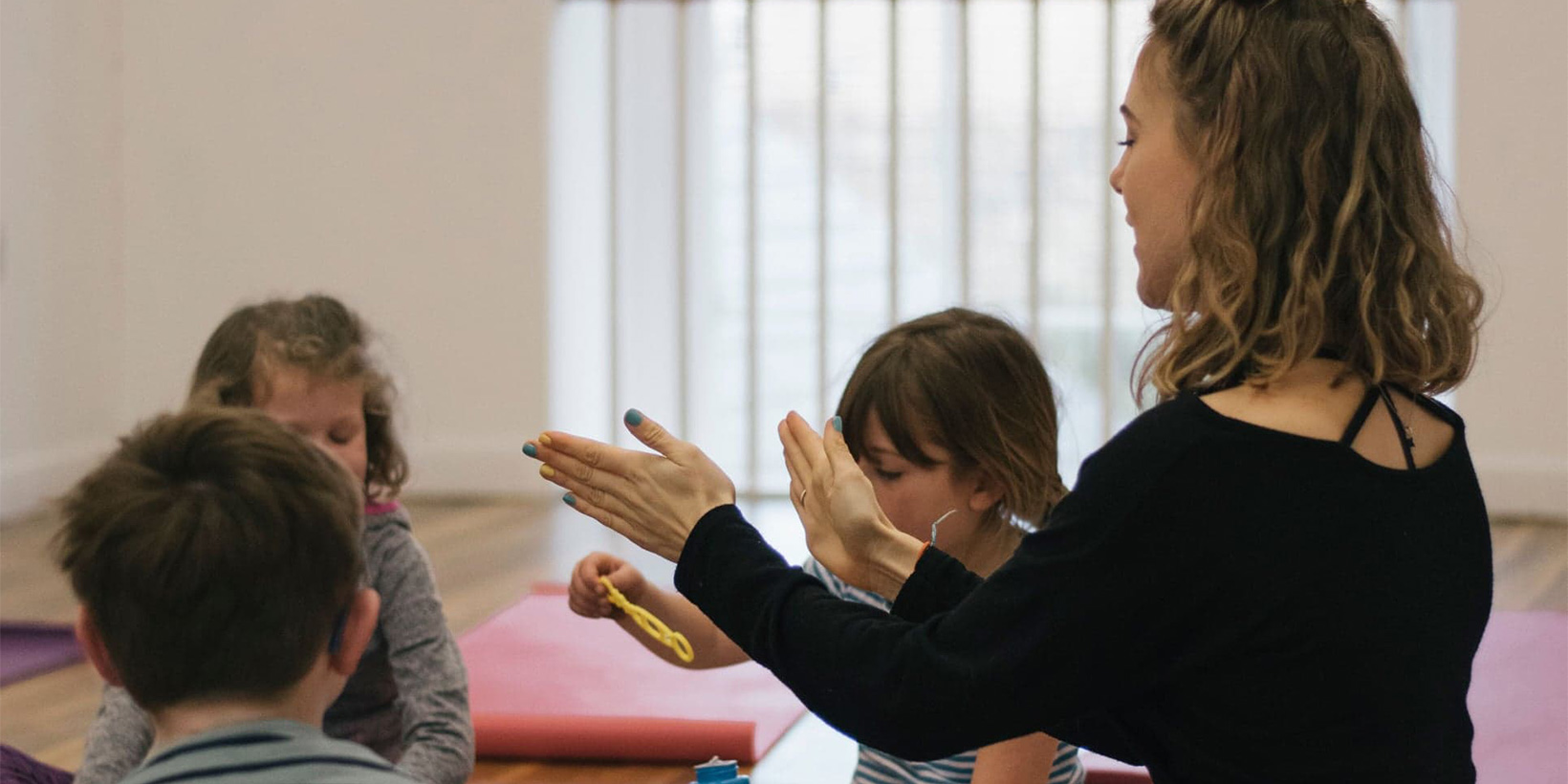
As the facilitator, are there any aspects you find especially challenging?
Ooh, that’s a tricky one! I guess one of the more challenging parts for me is the admin side of the job; reaching out to businesses and educators who I want to share my work with, or taking a gamble on hiring a space and hoping I reach enough people to fill it.
It was especially hard during Covid-19 to run classes online and distanced. Children often need that face to face contact to really engage.
But since the world has started opening up, what is lovely to see is people really valuing both adults’ AND children’s physical and mental wellbeing, and putting more priority on things that take care of us, like Yoga.
What is it that makes you want to continue along this path?
Obviously, I am super passionate about getting Yoga and Mindfulness out to as many children as possible, and I’ve spoken a lot about the benefits it can bring.
But more than that, I truly love what I do. I get to see some incredible little humans grow in confidence and strength and kindness, and they genuinely brighten my day and make me laugh in every class.
I hope that I am helping them to be happier and healthier as they move through life. My biggest driving force is to be the kind of adult I needed when I was little.
Coming back to your own practice for a minute, has teaching children informed the way you view yoga?
Oh my goodness, so much! Kids truly know how to be in the moment, in a way that adults can sometimes drift away from or be too distracted for. They WANT to have the most fun they possibly can, and their imaginations are phenomenal.
The number of times I have spent ages planning a class and then they come up with something better in the first five minutes! It reminds me that my practice can be spontaneous, it doesn’t have to look good, and I can make mistakes and get back up again.
So yes, not only does teaching children change the way I show up on my mat, but I would say it also changes the way I show up in my life.
Before we wrap up, is there anything you’d say to teachers thinking about training to teach kids?
I guess firstly, give the training the time and effort it deserves. I think people sometimes can underestimate children and teens. They are going through so much more than we can understand or remember as adults and this generation, in particular, has really been through it. They are exposed to so much more information and potential stress from such an early age, so we really owe it to them to learn how to be the best facilitators of their well-being that we can.
Secondly, it’s really fun! Obviously, some days are harder than others, sometimes a student is having an off day or doesn’t want to join in, and I am no stranger to self-doubt and imposter syndrome. But honestly, the joy of this job is something I will never take for granted. It’s truly wonderful.
Thirdly, always bring stickers for the end of class. I can’t explain it, but every child loves stickers!
I’m very grateful that I get to do what I do. It’s not always easy, but it’s incredibly rewarding.
Rosie is currently based in the UK, in Somerset/Bristol area. You can follow her journey by visiting her website/socials.
